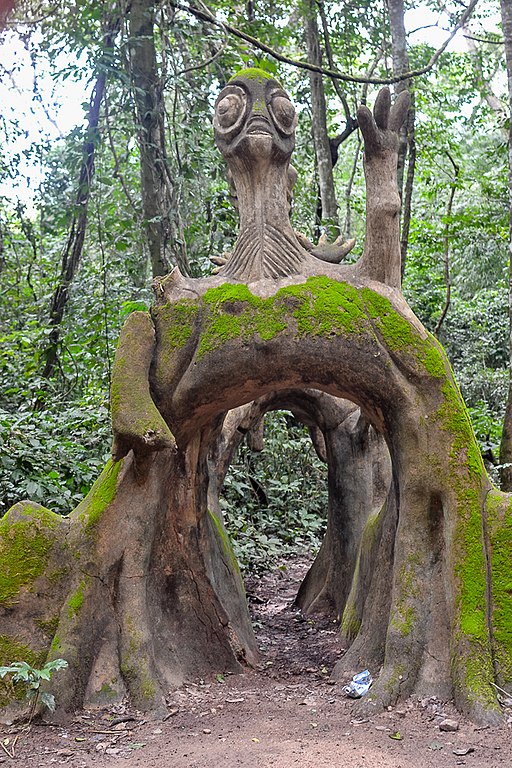In the contemporary discourse surrounding environmental conservation, the Bahá’í teachings offer profound insights that reflect an intrinsic reverence for the Earth. This ideology transcends mere ecological stewardship; it encompasses a holistic understanding of humanity’s relationship with the natural world. Thus, it is imperative to explore the multifaceted dimensions of this sacred trust, emphasizing principles that articulate the sanctity of the environment as a shared heritage. This exploration not only delineates the fundamental tenets of Bahá’í teachings but also elucidates the moral imperatives that compel adherence to these principles.
At the forefront of Bahá’í environmental philosophy is the concept of unity. The interconnectedness of all existence is a recurrent theme throughout Bahá’í scriptures. As articulated by Bahá’u’lláh, the founder of the Bahá’í Faith, all humans are a part of a single family, and this kinship extends to the ecological sphere. This perspective fosters a sense of responsibility among individuals and communities to nurture and protect the environment, viewing it not merely as a resource but as a sacred entity deserving of reverence and care. The acknowledgment of this unity necessitates a collective commitment to preserving the balance of our ecosystems, underscoring the imperative that environmental degradation ultimately undermines the well-being of humanity.
Moreover, the Bahá’í teachings emphasize a mantra of moderation and sustainability, which is integral to the notion of a Sacred Trust. The principle of moderation advocates for a balance between human advancement and environmental preservation. It challenges contemporary paradigms that prioritize consumption and excess, urging instead for a lifestyle grounded in sustainability. This philosophical framework posits that individuals should strive for equitable resource distribution, ensuring that the Earth’s bounty is utilized judiciously and ethically. The stewardship of the Earth necessitates a conscientious approach to consumption, advocating for practices that mitigate waste and promote ecological restoration.
In the Bahá’í view, education plays a crucial role in the stewardship of the Earth. Knowledge empowers individuals to make informed decisions that align with the principles of environmentalism. Educational initiatives within the Bahá’í community emphasize awareness regarding the ecological crises confronting the globe, such as climate change, biodiversity loss, and pollution. By fostering a comprehensive understanding of these challenges, individuals are better equipped to engage in transformative actions that promote ecological integrity. It is through education that the seeds of change can be planted, inspiring future generations to uphold the sacred trust of the Earth.
The Bahá’í teachings also address the concept of ‘justice’ as it relates to environmental practices. Justice, in this context, involves recognizing the interconnected fates of humanity and the planet. Environmental issues disproportionately impact marginalized communities, exacerbating social inequalities. The teachings advocate for social justice and environmental justice to be viewed as two sides of the same coin. To honor the Earth is to ensure that all people, regardless of their socioeconomic status, have access to a healthy environment. This dual focus elevates the discourse surrounding sustainability, reminding adherents that actions taken in the name of preserving the planet must also consider the well-being of all its inhabitants.
Alongside these teachings, the Bahá’í Faith underscores the importance of consultation. This principle advocates for collective dialogue, emphasizing that solutions to environmental challenges should be sought through collaboration. Consultation not just promotes inclusivity but also harnesses diverse perspectives that can enrich decision-making processes regarding environmental management. In practice, this means engaging stakeholders from various sectors, including governments, non-governmental organizations, and local communities, creating a holistic approach to environmental stewardship that is reflective of communal needs and aspirations.
Inextricably linked to consultation is the Bahá’í principle of collective responsibility. While individuals may feel a personal connection to the Earth, the Bahá’í teachings stress that environmental obligations are best fulfilled through collective action. Collective responsibility underscores the need for coordinated responses to ecological issues, which can catalyze effective change on a larger scale. This principle advocates for the establishment of global and local initiatives aimed at environmental preservation, fostering a culture where individuals are not only aware of their ecological footprint but also actively engaged in communal efforts to mitigate harm to the planet.
Furthermore, the Bahá’í teachings recognize the spiritual dimension of environmental stewardship. The Earth is regarded as a manifestation of God’s creation, and to neglect its well-being is to neglect the essence of divine purpose. Spirituality and environmentalism thus become intertwined, fostering a profound respect for nature as a reflection of the divine attributes. This spiritual grounding engenders a deeper commitment to protecting the environment, transforming ecological advocacy into a moral and spiritual obligation. The contemplative practices within the Bahá’í Faith, which encourage individuals to reflect on their relationship with nature, serve to deepen this connection and inspire action.
In conclusion, the depth of Bahá’í teachings presents a comprehensive framework that elevates environmental stewardship to the realm of sacred obligation. By advocating for unity, justice, education, consultation, and spirituality, these principles provide an ethical compass that guides individuals toward a more harmonious relationship with the Earth. Recognizing the planet as a sacred trust compels humanity to embrace a stewardship role, ensuring that future generations inherit a world that is not only habitable but flourishing. As we cultivate this sense of responsibility, we embody the essence of the Bahá’í teachings, fostering a harmonious unity with nature for the benefit of all.
